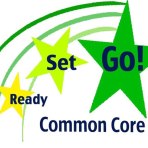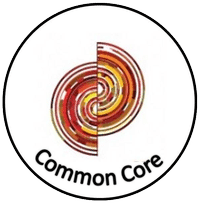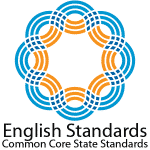“When we are no longer able to change a situation, we are challenged to change ourselves.” ~Victor Frank

I think it is exciting to see the changes coming with the Common Core State Standards Initiative, especially with regard to English Language Arts. I have been learning how these standards will impact my students; it is some fun stuff. I understand with this statement many of you do not agree. I think I actually just heard a few groans. But hang in here with me for a moment, and let me share my thoughts and experiences. Don’t get me wrong, I do not agree with the new CCSS ELA entirely. I have my concerns, and I know this will pass through education and it will change again into something new at a later point. I do, however, want to give you a few thinking points on the importance of changing our teaching to create thoughtful, creative, problem-solving citizens that come with Common Core.
In my reading group this year, we have done a few lessons using The National Archives’ Doc Teach site. WOW! My fourth graders have looked at maps from the late 1700s through the late 1900s. We have had discussions to compare these maps, evaluate their importance, and predict how various parts of the United States would be different if the map had not been created. Not only are my students learning map skills, they are reading and evaluating historical documents. With this site, there is an online tool for educators that allows you to select documents and create activities. You can also use activities that have already been created. Standards from the new Common Core pushed me to explore and use these documents with my students. I would not have done that on my own, but it opened a new world of reading in our classroom.
We are currently working on retelling passages as this is always a low indicator in our state assessments. Part of this test question procedure is endurance. Students not only have to read a story, they then have to read four lengthy “answers” that have been retold in varying order only to select the one matching the order of the story. Tedious, I know. This year, there are new text structure questions coming with CCSS that ask students to decide how the author organizes the information. We have been reading passages and highlighting clue words for these text structures. I have seen this increase my students’ attention to detail. They are finding evidence in the text to support their thinking. In doing so, I know this will increase their retelling because they are reading passages with more thought. They are also learning and practicing supporting their ideas. This connects to a lifelong skill. Being able to support their thinking will propel them in their fields later in life. Again, CCSS was the push I needed to look beyond teaching retelling.
Poetry is something I have always used for fluency and as a device to help students remember concepts or skills. I often found myself squeezing this in, although I knew it was important because there were other skills that I needed to teach. This year we have used poetry in our reading groups to focus on theme and literary skills. The Poetry Archive is a site I find myself using over and over. We have read and compared poems to our chapters and books, including Langston Hughes’s “The Winter Room” and Robert Frost’s “The Knots On My Yo-yo String”. These activities teach students to compare and contrast writings. My students have become excited about imagery and ask questions about words and descriptions they would normally not come across in their books. It took CCSS to allow me to find a meaningful way to use poetry in my class.
Change is hard. Harold Wilson said, “he who rejects change is the architect of decay. The only human institution which rejects progress is the cemetery.” We have seen many changes in education, and I have no doubt there will be many more to come. I choose to embrace the positive things I see with Common Core State Standards and celebrate what this can bring to my students. The new ideas and the thinking skills that will be implemented in classrooms around the country give me such strong hope for our future. We are starting to think about teaching higher level skills which will enable our children to become the leaders, scientists, politicians, doctors, and educators we so desperately need in our country.






I actually like some things better about the Common Core in comparison to our old state standards. For one, I like that it calls for more sophisticated writing at the high school level. I do think that they're jumping the gun with earlier grades, though.